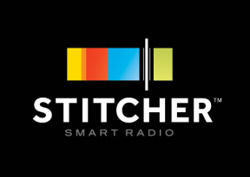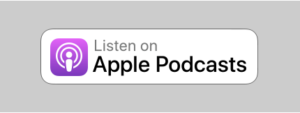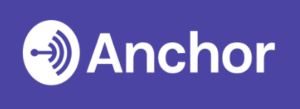 Monetization of podcasts. It’s a subject that could probably take up all of the space on all of the internet’s servers at this point. Podcast monetization has been covered from so many different angles, you’d think there couldn’t possibly be anything left to try. But that simply isn’t true. And that’s why Australia-based media hosting company Omny Studio has partnered with Israel-based CastPlus to bring more podcast monetization options to podcasters:
Monetization of podcasts. It’s a subject that could probably take up all of the space on all of the internet’s servers at this point. Podcast monetization has been covered from so many different angles, you’d think there couldn’t possibly be anything left to try. But that simply isn’t true. And that’s why Australia-based media hosting company Omny Studio has partnered with Israel-based CastPlus to bring more podcast monetization options to podcasters:
(the partnership will) …pair influential podcasters with brands and agencies seeking to monetize on the explosive growth of podcasting. Under terms of the partnership, podcasts hosted with Omny Studio will gain access to CastPlus’ extensive list of advertising partners.
In case you’re still not sure about the potential of podcast monetization, CastPlus and Omny Studio have some stats for you:
According to recent findings from Edison Research, more than 42 million Americans listen to podcasts every week and, unlike traditional radio, podcast listeners are highly engaged with their content: 88% of fans listen to all or most of the episodes of their favorite show, according to Midroll. Further, the Interactive Advertising Bureau released research in late 2016 that shows showing stats podcast ads increase purchasing intent for 65% of listeners. This has led to new market segments materializing for podcast advertising, including music publishers seeking to grow revenues for back catalogs, and radio broadcasters turning to podcast advertising to monetize repackaged shows from traditional broadcasts.
If you’d like to get your monetization on with this new partnership, check out the websites for CastPlus and Omny Studio to get started.
 You know podcasting has truly arrived when a prestigious organization like the Peabody Awards is nominating podcasts to its slate of 2017 finalists. In fact, there’s an entire awards category called Radio/Podcast. (Maybe in the future, Podcast will become liberated from that other, older medium it’s currently sharing the category with. OK, enough editorializing for now.) The Peabodies don’t give awards only to shows themselves in the Radio/Podcast category (example: This American Life, Yeast Radio, etc.). Instead, awards are given for individual pieces created by radio and podcast producers.
You know podcasting has truly arrived when a prestigious organization like the Peabody Awards is nominating podcasts to its slate of 2017 finalists. In fact, there’s an entire awards category called Radio/Podcast. (Maybe in the future, Podcast will become liberated from that other, older medium it’s currently sharing the category with. OK, enough editorializing for now.) The Peabodies don’t give awards only to shows themselves in the Radio/Podcast category (example: This American Life, Yeast Radio, etc.). Instead, awards are given for individual pieces created by radio and podcast producers. Since podcasting’s earliest days, there’s been an inherent need to try and organize the chaos that appears to be inherent within the medium. After all, podcasting was born of the old notion that the internet is a free and open environment, where not everything has to be stuffed into a singular vertical. While there are plenty of forces at work today that’d like to fence podcasting in, the medium is still mostly open, and still mostly free. Hence, the need for continued organizing of the ever-expanding podcast space remains essential.
Since podcasting’s earliest days, there’s been an inherent need to try and organize the chaos that appears to be inherent within the medium. After all, podcasting was born of the old notion that the internet is a free and open environment, where not everything has to be stuffed into a singular vertical. While there are plenty of forces at work today that’d like to fence podcasting in, the medium is still mostly open, and still mostly free. Hence, the need for continued organizing of the ever-expanding podcast space remains essential. Podcast-consumption app Stitcher has gone thru a lot of changes over the last few years. Once hailed as the second-largest destinations for podcast listeners after Apple Podcasts, Stitcher’s fortunes have faded somewhat during this transitional period. The service was sold twice, with the latest acquisition coming from Scripps/Midroll/Earwolf. Last year, it was announced that Howl, Earwolf’s premium content platform,
Podcast-consumption app Stitcher has gone thru a lot of changes over the last few years. Once hailed as the second-largest destinations for podcast listeners after Apple Podcasts, Stitcher’s fortunes have faded somewhat during this transitional period. The service was sold twice, with the latest acquisition coming from Scripps/Midroll/Earwolf. Last year, it was announced that Howl, Earwolf’s premium content platform,  Ever since Apple launched the iOS Podcasts app, effectively giving podcasts a dedicated location on Apple mobile devices, speculation has occurred that one day, Apple will break podcasts free from the desktop iTunes application in a similar manner. While that hasn’t happened yet, having a dedicated desktop podcast-consumption app made by Apple may be getting closer.
Ever since Apple launched the iOS Podcasts app, effectively giving podcasts a dedicated location on Apple mobile devices, speculation has occurred that one day, Apple will break podcasts free from the desktop iTunes application in a similar manner. While that hasn’t happened yet, having a dedicated desktop podcast-consumption app made by Apple may be getting closer. Podcasting is a medium that hasn’t traditionally been served well by shows that push the headlines of the day. Despite its on-demand nature, many podcasts are still downloaded and consumed later. Thus, a show carrying this format would have a very short shelf life. For a daily news show to be practical, it’d probably need to come from a source already trading in that kinda thing. Enter
Podcasting is a medium that hasn’t traditionally been served well by shows that push the headlines of the day. Despite its on-demand nature, many podcasts are still downloaded and consumed later. Thus, a show carrying this format would have a very short shelf life. For a daily news show to be practical, it’d probably need to come from a source already trading in that kinda thing. Enter  There’s a myriad number of tools available to podcast producers. Everything from simple USB microphones and free software to multichannel interfaces and full-featured digital audio workstations are employed every day by podcasters around the world. Despite the many options available when it comes to podcasting gear, there’s always room for more. Especially when that new technology promises to deliver big results in a compact form. And most important of all, that new technology has been touched by the hand of The Podfather himself, Adam Curry.
There’s a myriad number of tools available to podcast producers. Everything from simple USB microphones and free software to multichannel interfaces and full-featured digital audio workstations are employed every day by podcasters around the world. Despite the many options available when it comes to podcasting gear, there’s always room for more. Especially when that new technology promises to deliver big results in a compact form. And most important of all, that new technology has been touched by the hand of The Podfather himself, Adam Curry. The perceived “problem” of podcast discovery is a topic that comes up often. Especially if you listen to a lot of the voices that emirate from within podcasting’s Big East Coast Bubble. Some of those voices preach on about how podcasting needs new technology to make it easier for new listeners to find podcasts (specifically, their podcasts).
The perceived “problem” of podcast discovery is a topic that comes up often. Especially if you listen to a lot of the voices that emirate from within podcasting’s Big East Coast Bubble. Some of those voices preach on about how podcasting needs new technology to make it easier for new listeners to find podcasts (specifically, their podcasts). It feels like podcasters used to do a lot more to help promote each others shows. There’s no telling for sure why things like podcast promo exchanges have diminished over the years. Maybe there’s more of a sense of competition now between podcast producers. Or maybe the podcasting community has grown and changed so much that very few producers remember what it was like in the earlier days of the medium.
It feels like podcasters used to do a lot more to help promote each others shows. There’s no telling for sure why things like podcast promo exchanges have diminished over the years. Maybe there’s more of a sense of competition now between podcast producers. Or maybe the podcasting community has grown and changed so much that very few producers remember what it was like in the earlier days of the medium. Podcasters record a lot of interviews. And there may be as many techniques for recording interviews as there are interview-based podcasts. Audio-production and distribution service Anchor became the latest entrant to the interview-recording space with a
Podcasters record a lot of interviews. And there may be as many techniques for recording interviews as there are interview-based podcasts. Audio-production and distribution service Anchor became the latest entrant to the interview-recording space with a